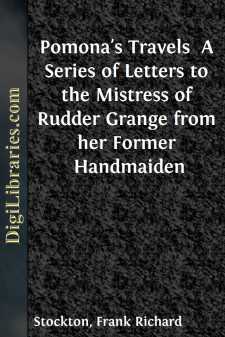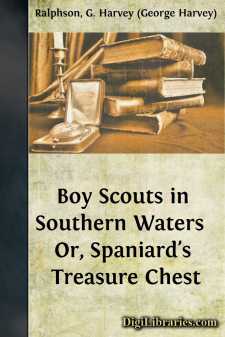Categories
- Antiques & Collectibles 13
- Architecture 36
- Art 48
- Bibles 22
- Biography & Autobiography 813
- Body, Mind & Spirit 142
- Business & Economics 28
- Children's Books 13
- Children's Fiction 10
- Computers 4
- Cooking 94
- Crafts & Hobbies 4
- Drama 346
- Education 46
- Family & Relationships 57
- Fiction 11828
- Games 19
- Gardening 17
- Health & Fitness 34
- History 1377
- House & Home 1
- Humor 147
- Juvenile Fiction 1873
- Juvenile Nonfiction 202
- Language Arts & Disciplines 88
- Law 16
- Literary Collections 686
- Literary Criticism 179
- Mathematics 13
- Medical 41
- Music 40
- Nature 179
- Non-Classifiable 1768
- Performing Arts 7
- Periodicals 1453
- Philosophy 64
- Photography 2
- Poetry 896
- Political Science 203
- Psychology 42
- Reference 154
- Religion 513
- Science 126
- Self-Help 84
- Social Science 81
- Sports & Recreation 34
- Study Aids 3
- Technology & Engineering 59
- Transportation 23
- Travel 463
- True Crime 29
Sort by:
THE SHAPE OF FEAR TIM O'CONNOR—who was descended from the O'Conors with one N—— started life as a poet and an enthusiast. His mother had designed him for the priesthood, and at the age of fifteen, most of his verses had an ecclesiastical tinge, but, somehow or other, he got into the newspaper business instead, and became a pessimistic gentleman, with a literary style of great beauty and...
more...
POMONA'S TRAVELS This series of letters, written by Pomona of "Rudder Grange" to her former mistress, Euphemia, may require a few words of introduction. Those who have not read the adventures and experiences of Pomona in "Rudder Grange" should be told that she first appeared in that story as a very young and illiterate girl, fond of sensational romances, and with some...
more...
In these days when the old civilisation is crumbling beneath our feet, the thought of poetry crosses the mind like the dear memory of things that have long since passed away. In our passionate desire for the new era, it is difficult to refrain oneself from the commonplace practice of speculating on the effects of warfare and of prophesying all manner of novel rebirths. But it may be well for us to...
more...
by:
C. B. Cox
CHAPTER I. It was the last day of Captain Wilbur Cranston's leave of absence. For three blissful months he had been visiting his old home in a bustling Western city, happy in the happiness of his charming wife in this her first long restoration to civilization since their marriage ten years before; happy in the pride and joy of his father and mother in having once more under their roof the soldier...
more...
by:
Alice MacGowan
WORTH GILBERT On the blank silence that followed my last words, there in the big, dignified room with its Circassian walnut and sound-softening rugs, Dykeman, the oldest director, squalled out as though he had been bitten, "All there is to tell! But it can't be! It isn't possib—" His voice cracked, split on the word, and the rest came in an agonized squeak, "A man can't...
more...
by:
Richard Hakluyt
Thirty-five years ago I made a voyage to the Arctic Seas in what Chaucer calls A little boteNo bigger than a mannë’s thought; it was a Phantom Ship that made some voyages to different parts of the world which were recorded in early numbers of Charles Dickens’s “Household Words.” As preface to Richard Hakluyt’s records of the first endeavour of our bold Elizabethan mariners to find...
more...
by:
Jacob Abbott
THE SETTING OUT. One pleasant morning in the autumn, when Rollo was about five years old, he was sitting on the platform, behind his father's house, playing. He had a hammer and nails, and some small pieces of board. He was trying to make a box. He hammered and hammered, and presently he dropped his work down and said, fretfully, "O dear me!" "What is the matter, Rollo?" said...
more...
CHAPTER I A COLLISION IN THE FOG "Wow! Look at that one! That's a monster!" "That must be the ninth wave." "What do you mean by the ninth wave, Jack?" "Why, Arnold, don't you know that every third wave is bigger than the two preceding it and that every ninth wave is bigger than the preceding eight?" queried Jack Stanley. "No, can't say that I ever knew...
more...
I Facing the Facts While deafness is a serious misfortune, it is neither a sin, nor a disgrace, to be ashamed of. It is a handicap, to be sure, but one to be bravely and cheerfully faced, for it does not destroy the chances for happiness and success. It is cause for neither discouragement nor despair. It will demand patient devotion and courageous effort to overcome the disadvantage, but what mother is...
more...
The question of a final criterion for the appreciation of art is one that perpetually recurs to those interested in any sort of aesthetic endeavor. Mr. John Addington Symonds, in a chapter of 'The Renaissance in Italy' treating of the Bolognese school of painting, which once had so great cry, and was vaunted the supreme exemplar of the grand style, but which he now believes fallen into...
more...











